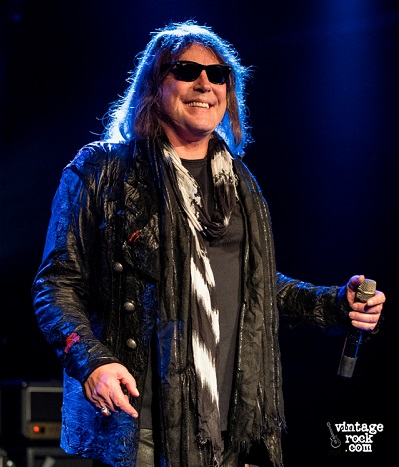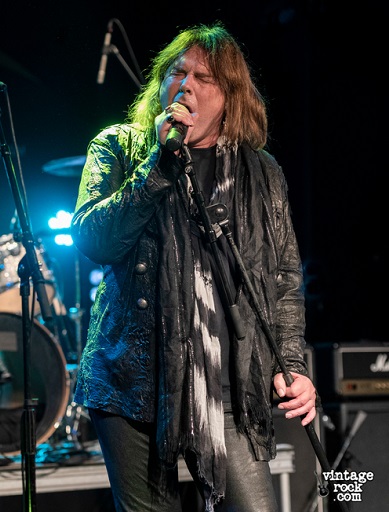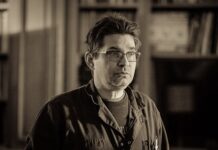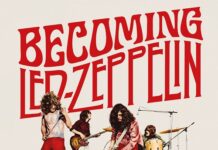Story & Live Photos by Charlie Steffens
Some of the groups that reigned in the 70s and 80s — particularly those that fall into the category of “Hair Metal” — are often discredited or completely disregarded. In the early 80s, many up and coming hard rock bands were boosted into mainstream popularity by MTV, and then were nearly driven into extinction by the grunge period and the subsequent downturn in the record business. Dokken was one of the bands affected.
Reflecting on this history after 40 years in the business, Don Dokken says that a band’s staying power is fueled by songs that get regular airplay, and from the fans who continue to come out to the shows.
“The songs weren’t fair-weather hits,” he says regarding Dokken’s singles. “There’s been 50 bands that came out in the 70s or 80s that had one hit and then they disappeared. But we had seven or eight hits. You look at Foreigner and they had, you know, six Number One hits. They’re on tour and they play the hits. That gives them their longevity. It’s about your body of work.”
Based in Los Angeles, Dokken’s definitive lineup consisted of Dokken on vocals and guitar, George Lynch on lead guitar, Jeff Pilson on bass, and Mick Brown on drums. Rising to mainstream and commercial success with the release of Tooth And Nail in 1984, MTV played a key role in boosting the bands’ popularity. MTV’s Headbangers Ball showcased an array of hard rock and metal acts, ranging from Accept to Zebra, and Dokken singles such as “Breaking the Chains,” “Just Got Lucky,” “Alone Again,” and “In My Dreams” got steady play, as well as exposure during extensive touring, creating great commercial success. After releasing two more studio records and a live album, Beast From The East, the band split in 1989.
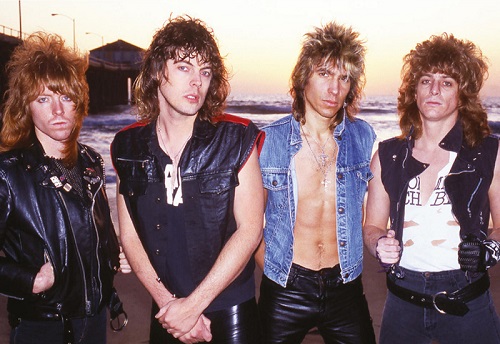
“It was a great time,” says Dokken. “It was exciting. We came from nothing and went to the top. We ended our career playing stadiums with Van Halen and the Scorpions. Jesus, Metallica was opening under us. It was just a shame that the drugs and the alcohol and the personality conflicts couldn’t let us continue. We just couldn’t. It was not tenable.”
The tension between Dokken and Lynch that had reportedly been going on since the group’s inception was the wedge that ultimately split the band. “George and I, obviously, were always butting heads. Constantly. From the day he joined the band we butted heads, and I kept thinking, ‘Well, if we get famous, if we get rich, that’ll all go away.’ But it didn’t, unfortunately. It got worse. So I just couldn’t take it anymore. You can’t put a price on happiness.”
In 1990, Dokken released his solo album Up From The Ashes and in the same year Lynch’s newly formed band Lynch Mob released its debut, Wicked Sensation with Brown on drums. Pilson had formed his own band, Flesh & Blood (later named War & Peace).
The four reunited in 1993 to work on material that Dokken intended for his solo record. Dysfunctional, released in 1995, was a Dokken album that revealed a musical range significantly different than in their previous recordings. Dysfunctional, Dokken says, is one of his favorites.
“That wasn’t supposed to be a Dokken album,” he says. “That was supposed to be (the) follow-up to my Don Dokken solo album. George wasn’t really involved in that record. It was my baby. Jeff helped out and Mick helped out. It had a lot of Beatles influences. It was different. I just thought it was a great album. It was an interesting album to do because I didn’t have anybody telling us what we had to do. We didn’t have a record deal. When I wrote that album I had my own recording studio and we could do what we want. We got to write that record with no rules. We just wrote what the fuck we wanted to.”
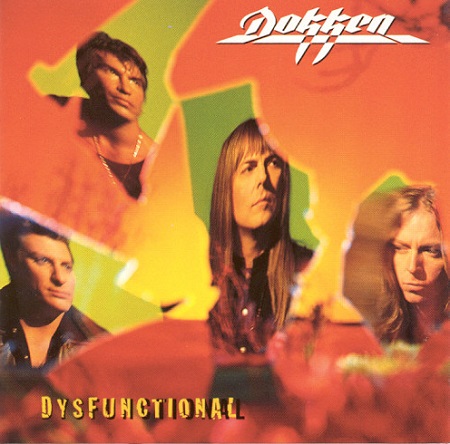
Dokken, in its classic lineup, toured for the Dysfunctional album, and in 1997 released Shadowlife. The album was a disappointment for the band and its fans. It would be almost another 20 years before Dokken, Lynch, Pilson, and Brown would tour and record together again.
Dokken continued in different formations, changing guitarists and bass players over the years. A bona fide reunion took place in October 2016 when the band performed a date in the States and several shows in Japan. They wrote and recorded their first song together in 20 years, “It’s Just Another Day,” featured on the album Return To The East Live (2016), which was released on April 20, 2018.
“It was fine,” Dokken recalls of the band’s short reunion, adding that there was no drama whatsoever. “We got along. It had been decades. It was easy breezy. We’d shoot the shit. You know, the conversation was different than it was in the 80s. (Then) it was what chick you met last night. How hot she was. Now it’s, ‘Show me some pictures of your kids.’ That’s the way it’s all changed. We grew up.”
In the current lineup, Dokken is joined by his longtime drummer Brown, guitarist Jon Levin, and bassist Chris McCarvill. The singer says that he’ll be releasing albums of material, tentatively scheduled for this summer(2019). One will be a reissue of his solo acoustic record, Solitary, including three additional songs. The other will be a compilation of unreleased demo tracks he had recorded before Dokken had a record deal.
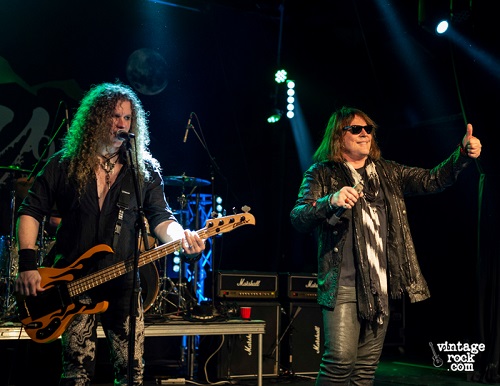
These days, Dokken tours extensively in the U.S. and abroad, and continues to play major festivals in Europe where they have a loyal following.
“I love touring,” Dokken says. “But I still say it’s 22 hours of hell for two hours of glory. Traveling, TSA, airports, driving a couple hours when you get to the airport. ‘Where’s the gig?’ It’s another two hours by van. It’s not easy. But once you go onstage your adrenaline kicks in and all that just doesn’t matter. Then you walk offstage and you go, ‘Holy shit. How did I get through that?’ And you collapse on the dressing room floor. Like I say, it’s 22 hours of hell for two hours of glory.”
After all these years of career ups and downs, highs and lows, Don Dokken is staying optimistic about what’s over the horizon.
“Sometimes…finding yourself sometimes at night just reflecting on the good and the bad in your life, and you wish you could go back and change this and change that. ‘I would have done this different, I would have done that better, I would have said this, and I wouldn’t have said that to that person and hurt their feelings’. But you can’t. You gotta look forward to tomorrow. Tomorrow is the future and the past is behind you. I’ve learned the hard way. Don’t live in the past. Don’t live about the glory days. Don’t be a prima donna. Don’t be a rock star. Whatever I did in the 80s or in the 90s — it’s the past. I look forward. Tomorrow is the new day. Not yesterday.”


